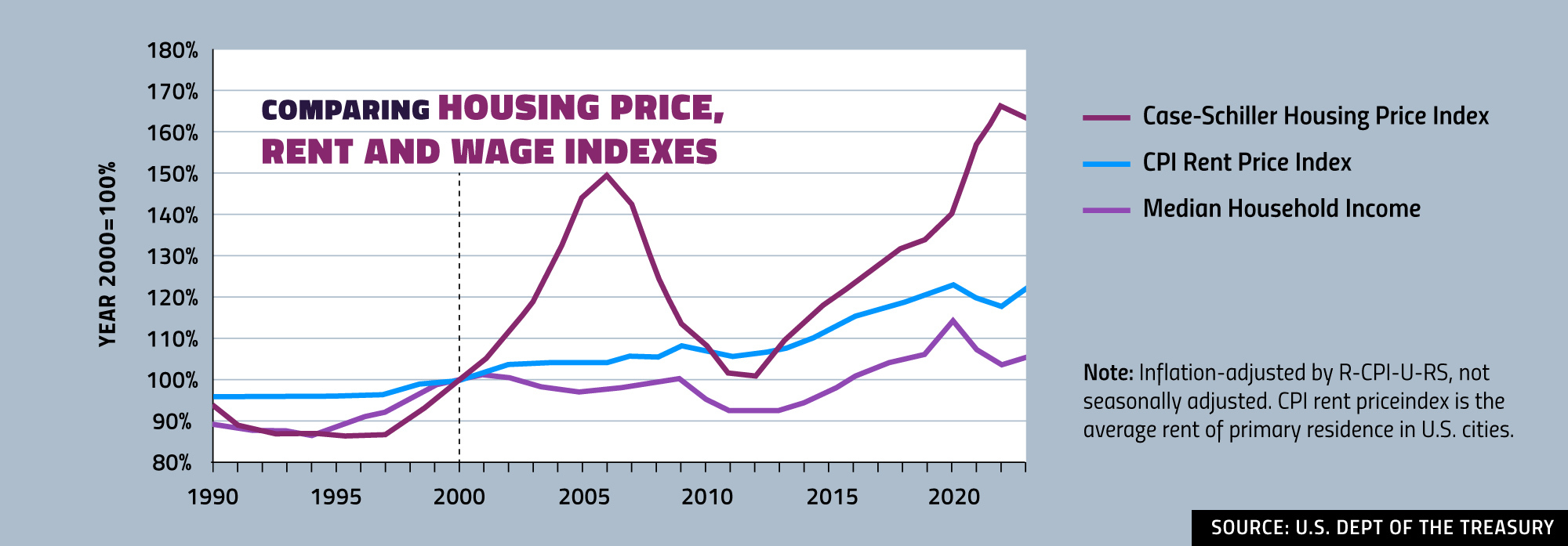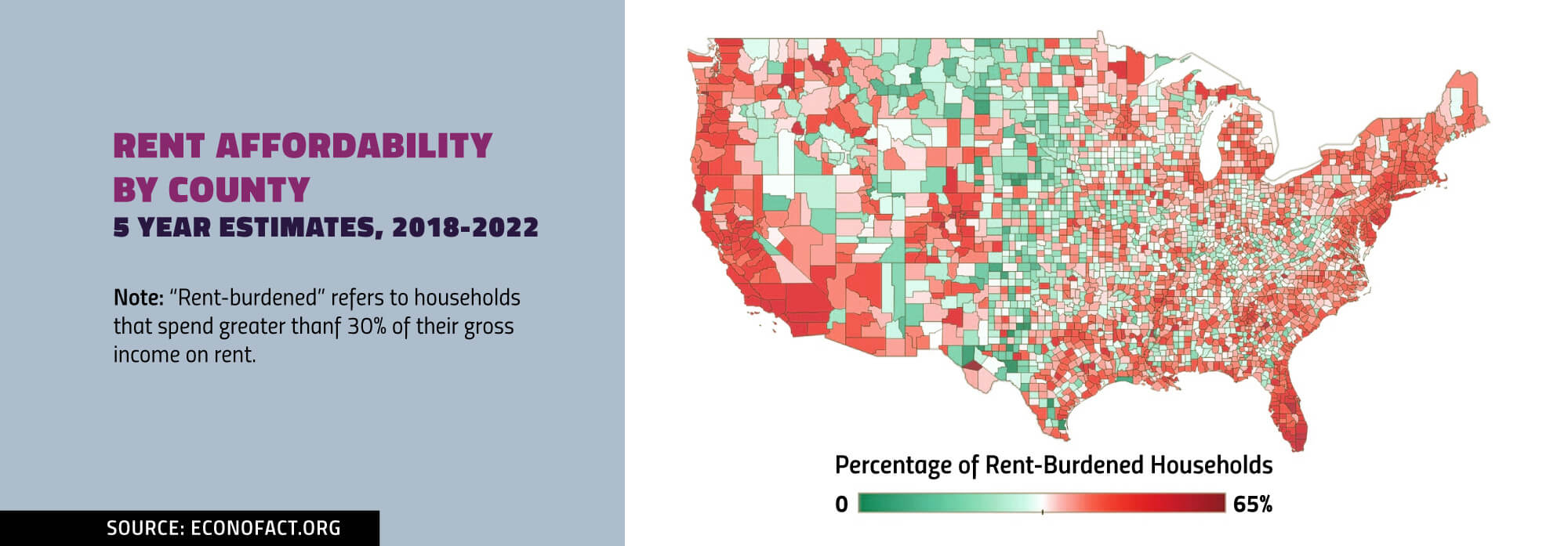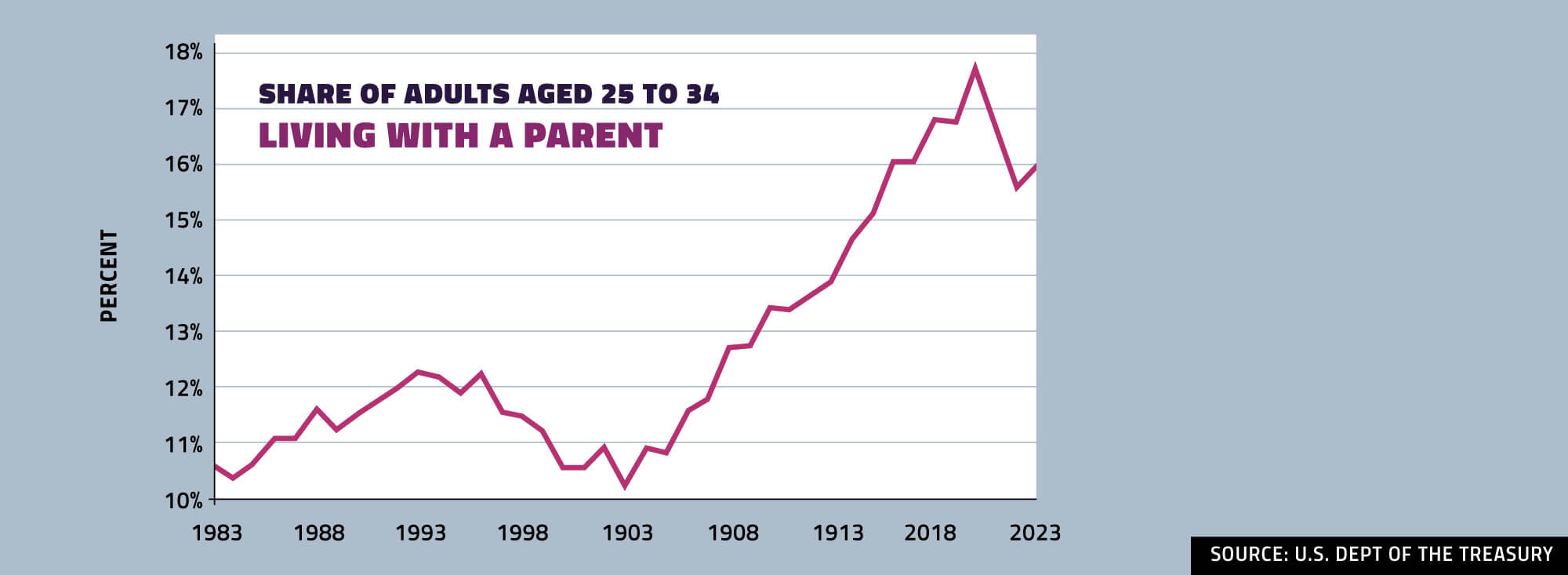
 |
By Idel Mena Social Media Manager |
January 16, 2025
Rent prices in the U.S. are at record highs, straining millions of families. But this isn’t just about supply and demand—it’s about corporate greed and legal bribery that rigs the system to benefit the wealthy few at the expense of renters. Let’s break it down.
Just how bad is the housing crisis?
For the past two decades, rents and housing prices have been rising faster than incomes. A 2024 report found that renters must earn $66,120 to afford to rent a typical apartment in the U.S.
The problem? The typical renter makes $11,000 less than that.
This isn’t an isolated problem happening in a handful of communities in certain regions of the United States; this is a problem that’s happening everywhere.
More than 90 percent of Americans live in counties where median rents and house prices grew faster than median incomes from 2000 to 2020.
The increase in housing costs has a trickle down effect that strains household budgets: there is less money leftover to spend on food, health care, education, retirement. Along with student debt, the cost of housing has forced many adult Americans to keep living at home, preventing them from getting their own place or starting families.
Because of high rents and low incomes, more than 650,000 people experienced homelessness in 2023, a record high. More people than ever before are experiencing homelessness for the very first time.
Corruption, collusion, and corporate lobbying keep the system broken
Policies like rent stabilization exist and are designed to help protect tenants and help lessen the financial burden of housing costs. But large real estate companies, investment firms, and the trade associations that represent them have fought back against these policies to protect their profits.
Between 2019 and 2022, trade associations including The National Multifamily Housing Council, National Association of Realtors, and the National Apartment Association spent $569 million in lobbying at the state and federal level to aggressively counter policies like rent stabilization that help tenants.
This isn’t an isolated problem happening in a handful of communities in certain regions of the United States; this is a problem that’s happening everywhere.
Blackstone, the nation’s largest landlord, has gotten directly involved in local politics by funding campaigns to oppose pro-tenant policies. In the 2018 and 2020 elections, for example, they spent over $13 million lobbying against ballot measures that would have let municipalities enact rent control.
If that weren’t bad enough, these companies are also allegedly colluding with each other to keep rent prices high and their profits even higher. The Justice Department has sued both RealPage (a property management software-maker) and six of the nation’s largest landlords, accusing them of working with each other and using algorithmic pricing to improperly raise rents. T
They’ve thrown out basic supply and demand in favor of rigging the system to their benefit: Instead of lowering their rents to compete with each other to attract tenants, they are illegally working together to screw you.
It goes beyond renters’ pocketbooks, too. The desire to maximize profits sometimes leads landlords to neglect property maintenance (creating unsafe and unhealthy environments), pursue aggressive eviction practices (causing financial instability and housing insecurity), and evade taxes (draining communities of resources).
And our broken political system lets them get away with all of it.
What can we do?
The housing crisis isn’t an accident. It’s a rigged system where corporate greed drives up rents and lobbying ensures nothing changes.
It’s important to advocate for affordable housing and pro-renter policies, but to truly fix this problem, we have to fix the system that enables it. That means getting money out of politics and passing tough anti-corruption laws like:
- Banning lobbyist donations to elected officials
- Ending the “revolving door” between serving in office and working as a lobbyist
- Requiring disclosures on sources of major donations
- Strengthening penalties for attempting to buy political influence
- Placing caps on campaign spending
If you’re interested in getting money out of politics and making our system work for everyday Americans rather than large landlords and the wealthy few, sign up with us and find out how you can get involved.


